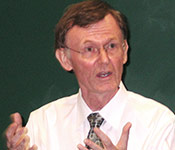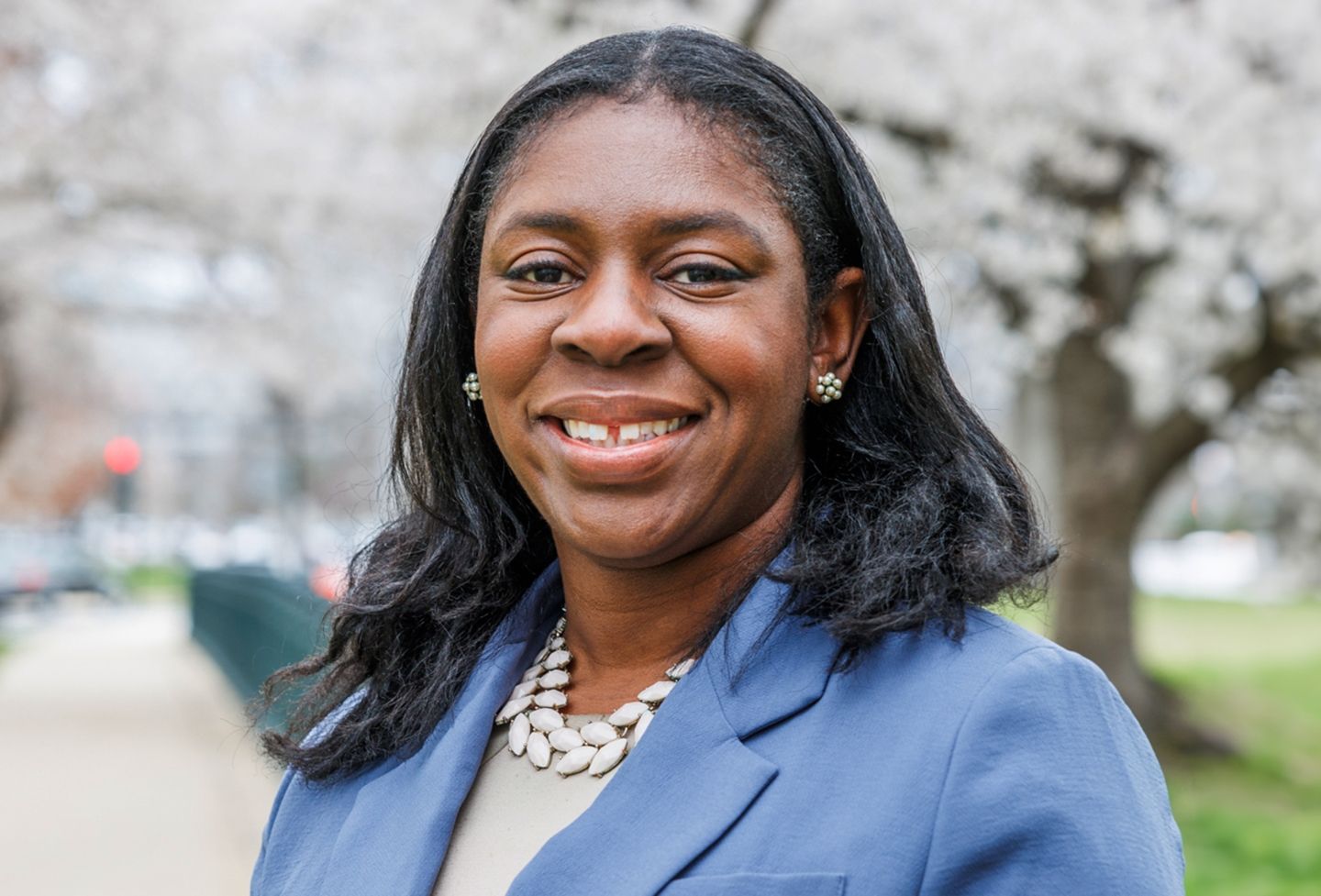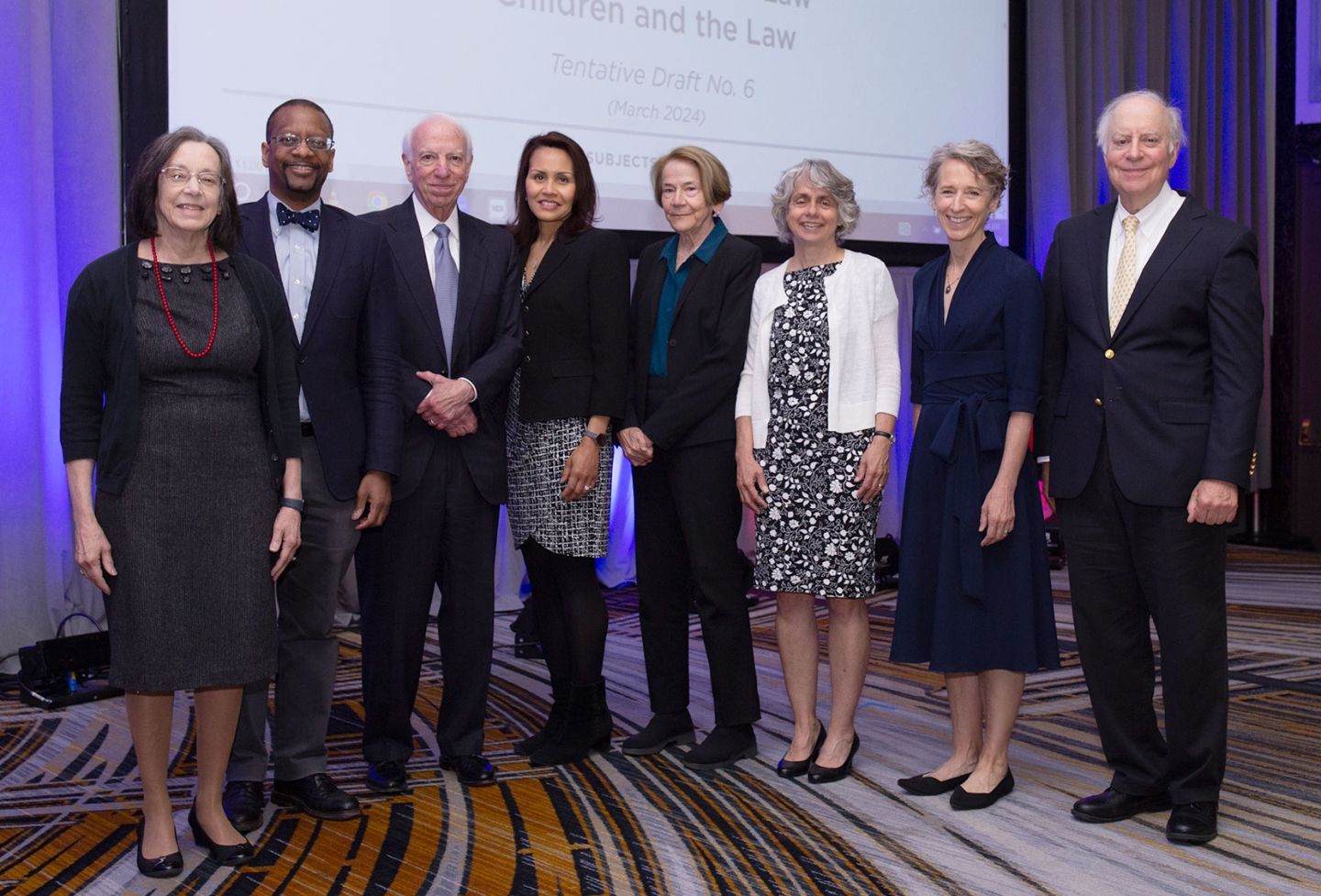Values Critical to Understanding Health Care Debate, Scholar Says
Differences in fundamental values are at the root of disagreements over the future of the U.S. health system, said a leading scholar at one of the nation's most influential think tanks during a lecture at the Law School Thursday.
 "If you look at how ordinary Americans think about things, very quickly it gets down to these foundational issues; that's very much what people get consumed by," said Stuart Butler, vice president for domestic and economic policy studies at the Heritage Foundation. Butler was the third speaker in this year's Sadie Lewis Webb Program in Law and Biomedicine lecture series, "The Future of Health Care Reform."
"If you look at how ordinary Americans think about things, very quickly it gets down to these foundational issues; that's very much what people get consumed by," said Stuart Butler, vice president for domestic and economic policy studies at the Heritage Foundation. Butler was the third speaker in this year's Sadie Lewis Webb Program in Law and Biomedicine lecture series, "The Future of Health Care Reform."
He identified four issues that formed the core of the values debate. They included questions such as whether there was a right to health care and what the role of the employer should be, as well as institutional debates over whether to add or reorganize the system and whether a national or fragmented system would be more effective.
Based on his extensive experience in health care survey work, Butler said that while most Americans view health care as a community-based right that all people should be entitled to, they also strongly believe that everyone should contribute something to it.
"If you ask Americans, typically they say that people should get health care, but they should pay something for it," he said.
Butler said most favored restricting the government's role to regulatory duties like protection from insurance companies, while preserving their autonomy to make their own choices.
"If you say to them: 'Do you think the government should make all the decisions about what health care you want'...they don't want that. On the other hand, they think that the government should play a very strong role in what they call making it fair, enforcing the rules," he said.
While Americans' views on health care are motivated by these fundamental values questions, Butler warned that they continue to have a poor understanding of this deeply emotional issue.
"When people are very concerned about something and it's very emotional, and they are confused about it or worried about it, they tend in general to be less open to change. It's very difficult to get Americans to accept big changes in the health system," he said.
As a result, Butler was skeptical about any quick reform packages being enacted in the next administration, despite potential Democratic dominance in the executive and legislative branches. He argued that there will likely be some movement toward a smaller set of reforms like a children's health bill, which was vetoed twice by President George W. Bush late last year.
"My general feeling about the future is that since health care is such a complex thing, we've got to move people through in stages," he said.
Butler, originally from Great Britain, has been working for the conservative Heritage Foundation for almost 40 years, focusing on domestic issues such as health care, social security and welfare reform. Recently he played a large role in the national "Fiscal Wake-Up Tour," where a group of nonpartisan experts toured the nation to help tackle the ballooning budget costs of Medicaid, Medicare and Social Security.
Law School Professor Margaret Foster Riley highlighted Butler's unique ability to work with people across the political spectrum on an often-divisive issue.
"What distinguishes him is that he is well respected on both sides of the aisle," she said.
The lecture series continues Nov. 6 at 6 p.m. in Withers-Brown room 102, with Carolyn Engelhard of the UVA Public Health Sciences department discussing the future of health care reform after the presidential election. Lectures in the series are open to the public.
Founded in 1819, the University of Virginia School of Law is the second-oldest continuously operating law school in the nation. Consistently ranked among the top law schools, Virginia is a world-renowned training ground for distinguished lawyers and public servants, instilling in them a commitment to leadership, integrity and community service.


